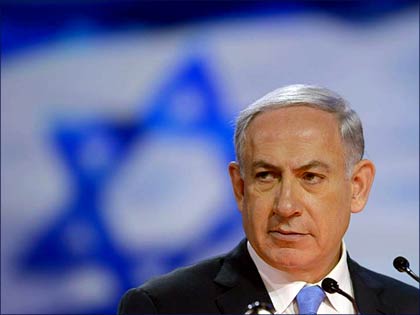PM Netanyahu meets with bipartisan US Senate leadership
-
-
3/3/2015
GovXShortDescription
There is a need to enact more vigorous restrictions in the agreement being formulated, thus lengthening the time it will take Iran to produce nuclear weapons.
-
-

 Prime Minister Benjamin Netanyahu (archive)
Copyright: GPO
Prime Minister Benjamin Netanyahu (archive)
Copyright: GPO
|
GovXContentSection
(Communicated by the Prime Minister's Media Adviser))
Prime Minister Benjamin Netanyahu, today (Tuesday, 3 March 2015), met with the bipartisan leadership of the US Senate, pursuant to an invitation from Mitch McConnell (R-KY) and Harry Reid (D-NV). Also attending the meeting were John Barrasso (R-WY), John Thune (R-SD), Dianne Feinstein (D-CA), John McCain (R-AZ), Al Franken (D-MN), John Cornyn (R-TX), Charles Schumer (D-NY), Richard Durbin (D-IL) and Bob Corker (D-TN).
At the start of the meeting Prime Minister Netanyahu said:
"I do want to thank the leadership of the Senate, Republicans and Democrats, both sides of the aisle, for inviting me here, giving me an opportunity to state Israel's concern about an issue that could be the most important issue of our times. I believe it is. I was very moved by the attention and the responses to the speech from both sides of the aisle, and it's very clear to me and it was clear in that hall to anyone who was there that the support for Israel is strongly bipartisan, that there is a very broad support of the American people and its representative for the Jewish state and I'm very, very grateful for that.
Thank you, thank you."
Prime Minister Netanyahu told the senators that the two new items in his
address to Congress were the need to enact more vigorous restrictions in the agreement being formulated and thus lengthen the time it will take for Iran to break through to nuclear weapons. Also, in the agreement being formulated these restrictions must not be lifted automatically within a decade but only after Iran will have fulfilled three conditions: Stopping its support for global terrorism, stopping its aggression against its neighbors and stopping to threaten Israel's annihilation.
-
-
-
-
-
-
-
-
-
-
-
-
-
-
-
-
-
-
-